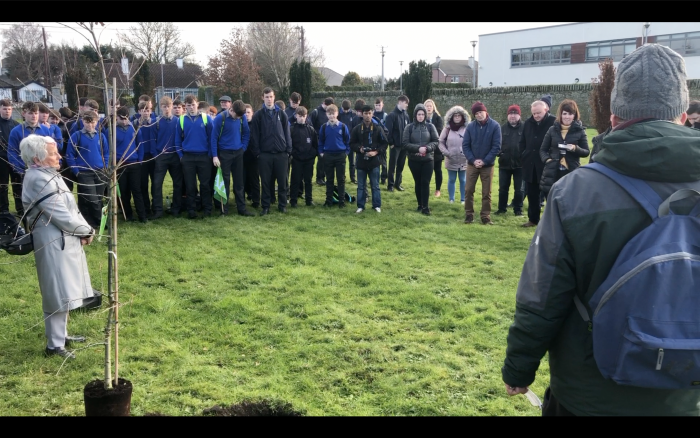Join Afri and South East Technological University on Thursday, March 27, from 11 am to 2 pm for this remarkable annual festival! This year’s theme, Creating Cultures of Care, prompts us to consider the vital role of care, exploring the profound significance of the past and ways we can forge futures rooted in empathy, solidarity, and support for one another.
Enjoy various engaging and moving events, delving into the intertwined legacies of colonialism and care, challenging us to consider how we honour the past and nurture the future. Through a commemorative walk, music, and the premiere of a thought-provoking documentary, we will explore the profound significance of our past and invite you to consider how we can cultivate a culture of care in our lives and communities.
Event Highlights:
11:00 AM – Launch of the Event in A102
Dr. Eileen Doyle-Walsh, Head of the Faculty of Business and Humanities, will kick off the day with an inspiring message accompanied by beautiful music from Kseniya Rusnak.
11:20 AM – Commemorative Walk to the Famine Graveyard
At the heart of our festival lies the Famine Graveyard, a solemn site where 3,000 souls rest, victims of An Gorta Mór. Led by Afri, we will walk and commemorate those who died or were displaced during this time. Through engaging speakers, including Nandana James, input from a local historian, Anthony Brophy, and song and tree planting, we will consider how caring for one another and the planet embodies the lessons of history. This commemoration also shows how the Famine Graveyard is slowly transforming into a place that not only remembers and honours those who died during An Gorta Mór, but also a space where biodiversity has begun to flourish.
12:40 PM – Launch of Documentary Premiere
Join Dr Denise Lyons and Charlotte Burke at the launch of a powerful new documentary, “The History of Social Care Education.” This critically important documentary explores the history and development of welfare provision in Ireland, specifically looking at the impact of the first social care course in Kilkenny in 1971. Before the screening, we will hear the story of how the documentary came to fruition, as well as insights on the importance of building cultures of care, both locally and globally.
12:50 PM – Documentary Screening
Be among the first to view “The History of Social Care Education.” This powerful 45-minute documentary sheds light on the history of welfare provision in Ireland and how social care education emerged from the inspiration of three adults who wanted to create change in how we cared for vulnerable people in Irish society. This SATLE-funded collaborative project between Dr Denise Lyons, Charlotte Burke and Year 3 students of SETU Carlow Campus, and Mr Pat Brennan, Sr Stanislaus Kennedy and RoJnRoll Productions is not to be missed!
1:40 PM – Reflections, Evaluations, and Closing Music
We will conclude the day with reflections on the themes discussed and how we can embody the lessons of history in our daily lives.
Join us and be part of a transformative experience that honours our past while paving the way for a more caring future.











